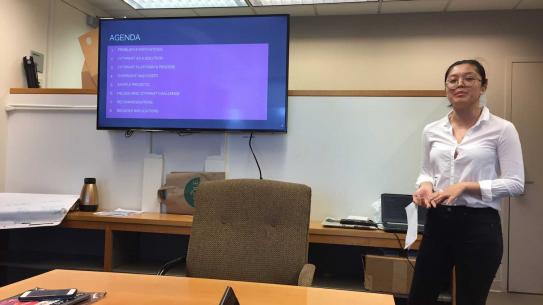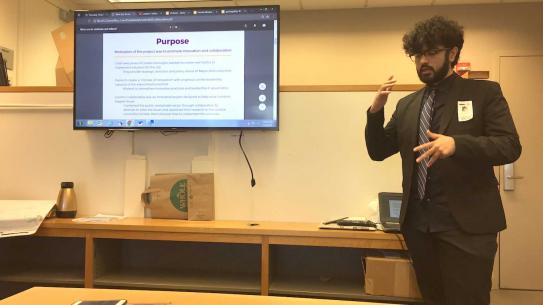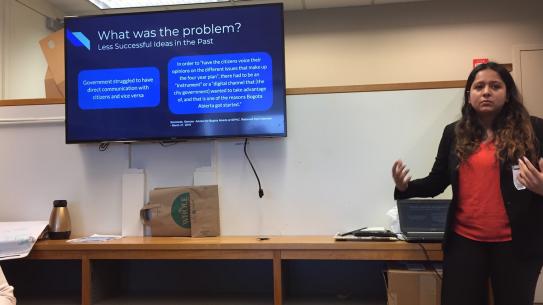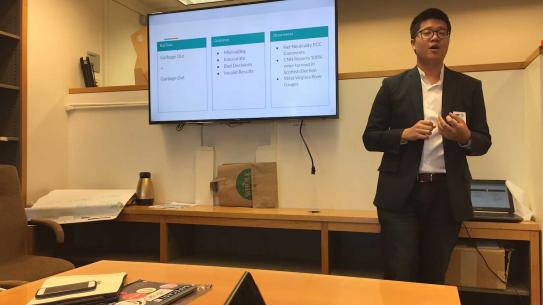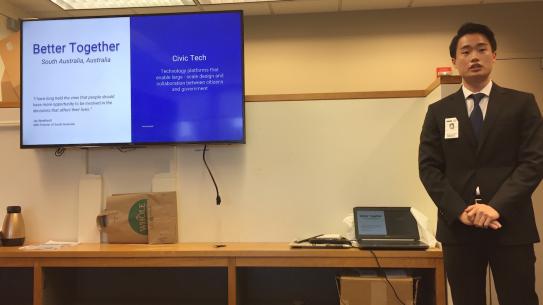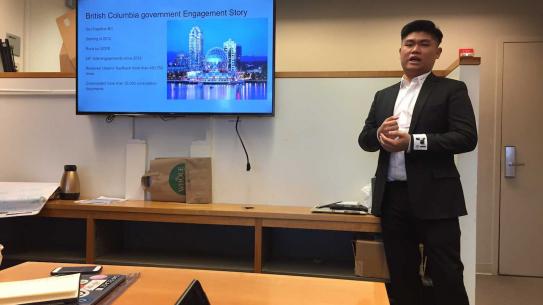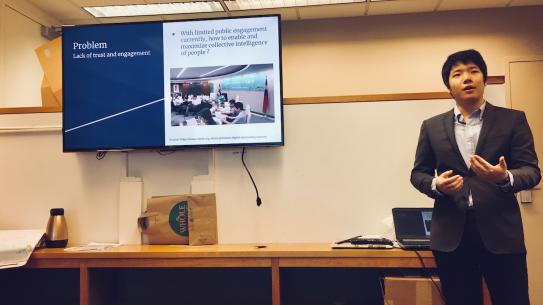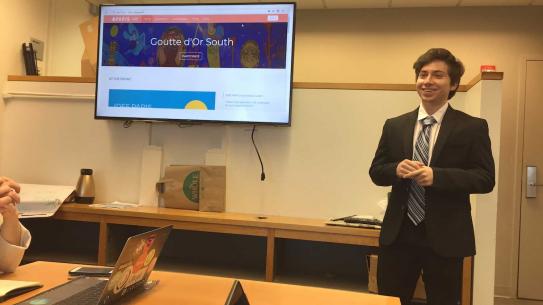Students Present City Officials with Digital Democracy Initiatives
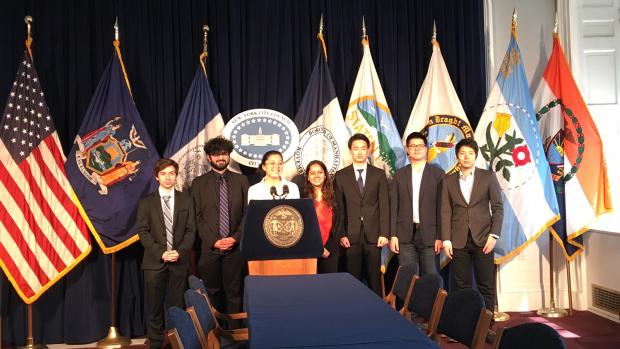
Students of Professor Beth Simone Noveck’s Governing the City class in City Hall
NYU Tandon students in Professor Beth Simone Noveck’s class Governing the City, which focuses on the impact of new technology on urban governance, presented New York City Council staff members with creative approaches for participatory lawmaking.
The goal? Persuading the Council to adopt digital platforms that engage New York City residents in each phase of the lawmaking process. The class pitched eight approaches, drawing on their original research into global use cases from London to Bogotá. These platforms have enabled cities to tackle societal problems, stimulate cultural creativity, and foster stronger democracy in collaboration with their citizens.
In the traditional lawmaking process, government actors have relied on active constituent groups, lobbying arms, trade organizations, and similar bodies to clarify which policy matters to pursue. In recent years, digital platforms have emerged that allow the public to directly propose and prioritize issues. Rupal Mehta pitched Bogotá Abierta, a website that launches open government challenges. Colombians have contributed over 25,000 ideas since 2016, incentivized to vote and comment for participation points redeemable through local benefits. Given New York’s plethora of cultural activities, Rupal proposed that the NYC Council could create a similar incentive structure.
Participation platforms can also play an influential role in enabling residents to offer topical proposals and vote on possible government solutions. Jeen Snidvongs and Sang Won You presented two of these e-consultation projects: smart city startup PlaceSpeak and South Australia’s Better Together. Jiaming Wu pitched GovTogether British Columbia for its unique multi-channel approach to gathering citizen opinion on planned municipal projects: telephone townhalls, digital surveys, online ratings, blog comments, emails, and in-person community meetings. To sort through citizen feedback, Yuan Qin touted Taiwan’s national consultation platform (vTaiwan) for its complex algorithm that divvies responses into opinion groups. vTaiwan also uses artificial intelligence to manage the volume of comments.
If New York launched its own e-consultation platform, something like vTaiwan’s algorithm could help the NYC Council discern public opinion on controversial issues. The students also encouraged using preexisting technology infrastructure like LinkNYC to increase access and adoption of a NYC e-consultation program.
Two students considered ways that the NYC Council could creatively implement projects with help from a network of innovators. Angel Chen recommended a collaboration with CityMart. She exhibited a number of successful CityMart use cases including a partnership with the City of Melbourne. Through an online competition addressing congestion, CityMart solicited solutions from the public and its network of civic innovators; the Australian city awarded two transportation startups the opportunity for widespread implementation with Melbourne’s leaders. Alvand Daghoghi similarly endorsed an expert network: the now-defunct London Collaborative, an informal research network of public and private sector leaders. Rather than a group that assembled periodically for conferences, Alvand envisioned an expert network for NYC instantly accessible on a digital platform.
Decision-making through participatory budgeting (PB) has been another major triumph for civic engagement. Nic Parada thought the NYC Council could build out its current PB initiatives by following Paris Idée. In 2014, 5% of Paris’s budget was funded through participatory budgeting made simpler by Paris Idée. With virtual collaboration and ideation, Nic made the case that full-scale adoption of a participatory budgeting website could improve New Yorker participation and thereby increase funding towards PB.
The students received valuable feedback from a NYC Council team led by Legislative Director Jeff Baker and Web Developer Jonathan Chei and including Jenny Low, Erika Tanner, and Rob Newman. Their much-appreciated participation signaled their openness to using CrowdLaw approaches and tapping public intelligence for the public good.
Nikita Singareddy
Research Assistant
The GovLab


